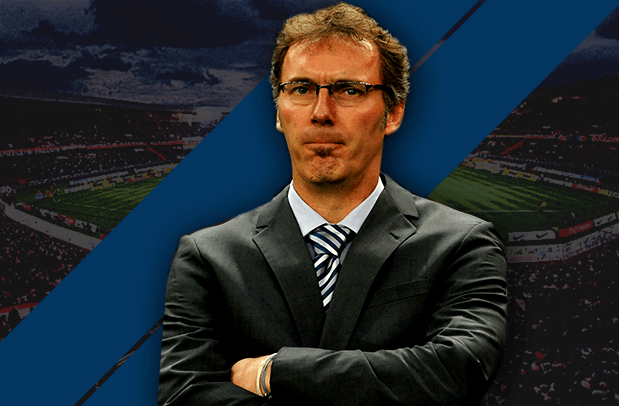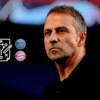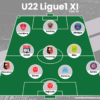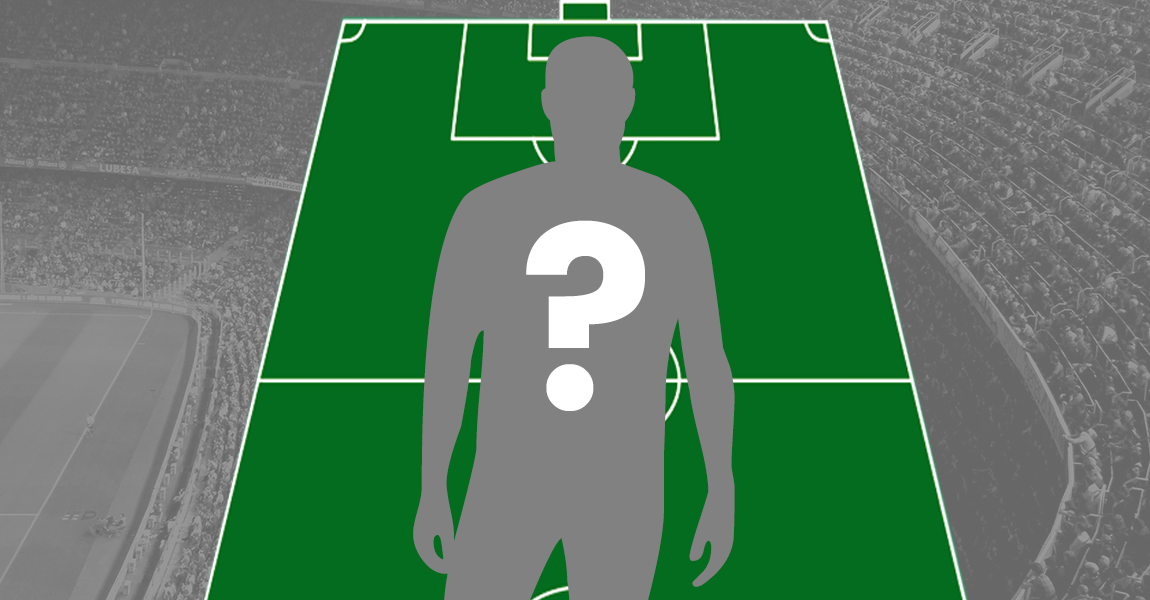Laurent Blanc’s appointment as Carlo Ancelotti’s replacement was an interesting move. Blanc had the reputation of being one of the game’s brightest young managers, as he indeed still is, but the big question was if he could meet PSG’s lofty expectations. Dayann Charles looks back at Blanc’s spell at the club thus far.
The Entrance
The 2015-16 season marks Laurent Blanc’s third season in charge of PSG, a tenure that really began in acrimonious circumstances. His appointment back in 2013 was a mire; supposedly the tenth choice manager to replace the recently departed and highly reputable Carlo Ancelotti, Blanc, just 46 years of age at the time, entered a dressing room of egos and a cauldron of expectation. If he wasn’t already under pressure, his affiliation to our arch-rivals Marseille during his playing career did nothing but sour the prospect of having a relatively inexperienced manager at the helm of a club that was on the precipice of sustained success for the first time since the 1990s. Perhaps a less steely character would’ve collapsed under the demands and strains of the scenario but the former World Cup winner and renowned leader, who merited the nickname ‘El President’ from his time at Marseille, quickly adapted to his surroundings.

The Story so Far
Fast forward just over two seasons and Blanc stands as the single most successful manager in the club’s history, with 8 trophies to his name and the highest win percentage of any manager as of September 2015. His first competitive game with the club was the 2013 Trophée Des Champions (TdC), which ushered in the first of his silverware. Since then, back to back league titles and League Cups as well as two further TdCs and a French Cup have become part of the furniture in the club’s trophy room. A similar feat elsewhere in Europe’s other top leagues would’ve probably left Blanc hoarding plaudits and big clubs scrambling for his signature but his achievements thus far have remained generally understated below the overlook of continental observers. The question remains, why?
The 2014-15 season marked an unprecedented domestic clean sweep as the club won both cup competitions and the league. We had never defended a title in the club’s history and Blanc has achieved this twice. It’s no secret that pretty much the sole factor for the club’s success in recent years has been the investment from QSI; a financial powerhouse that has created a vast gap in resources between PSG and traditional French rivals such as Lyon and Marseille. There’s no two ways about this. Most likely this is the reason that Blanc’s accomplishments are disregarded because irrespective of how the team plays and how the fans feel, those that don’t follow the club on a personal level expect the club to dominate domestically. And that’s not a far-fetched presumption in this far from level playing field, but expectation doesn’t always equal reality. Except in Blanc’s case, it has so far. In the past two years of French football, PSG have only missed out on one domestic trophy, the 2013-14 French Cup. Blanc’s predecessor, Carlo Ancelotti, who has an unarguably greater managerial reputation, failed to win a single domestic cup in his 18 months or so in charge.
Nonetheless, the Champions League remains the true testing ground; the club’s ultimate ambition remains winning Europe’s premier competition. During his two seasons at the club, Blanc has thus far been unable to overcome the quarter finals. His ventures in the Champions League are discussed later in the Tactics section.
The Dressing Room
Ancelotti is regularly touted as one of the nicest managers in football, someone that all players seem to have an affinity to. This was definitely the case at both PSG and Real Madrid. This was plain to see from the PSG players reactions during a friendly with Real Madrid in January 2014. A similar message was conveyed when we saw the reactions of Real players after Ancelotti was sacked at the end of last season, with many quick to thank him and lauding his work at the club. Both instances portray a manager who could win over all sides of a dressing room to get the team playing well. Whilst Blanc may not possess as benevolent a character, he has certainly kept the egos of the dressing room in check for most of his term. There were murmurings at the start of last season that a rift had appeared between the players but this was quickly quashed as the club went on a run of 9 wins in all competitions which included a fantastic 3-2 win in the Champions League against a Barcelona team that had not conceded up till then. A similarly fractious furore surrounding Adrien Rabiot reared, an undoubted talent who was seemingly out the door before a miraculous u-turn kept him at the club and despite more recent mumblings on the topic, Blanc did a great job in reintegrating the youngster into the team. If he remains at the club for several more years, the club is likely to reap the rewards of Blanc’s successful handling of the situation involving such a talented player.
The Tactics
Carlo Ancelotti regularly employed a 4-4-2 in the league but the pinnacle of his tactical prowess was the setup employed against Barcelona in the 2012-13 UCL quarter finals, which we eventually lost 3-3 on away goals. The return leg at the Nou Camp embodied Ancelotti’s tactical nous as Pastore scored a counter-attack goal to put PSG on the edge of qualification for the semi-final after a very fortunate 2-2 draw in the first leg. Barcelona were much fancied prior to the tie and the arrival of Messi from the bench duly turned the game as Pedro scored the equaliser which was enough to confirm PSG’s exit, despite a solid performance from the team as a unit.
Contrastingly, Blanc’s managerial tactics can probably be summed up in one word – possession. No matter who the opposition is, LB remains intransigent on the matter, he wants the team to keep the ball. Barcelona and Pep’s Bayern generally shade PSG in terms of possession stats on a weekly basis but otherwise PSG are up there. But it doesn’t necessarily just boil down to keeping the ball. Without fail, Blanc employs a 4-3-3 formation, with 2 of the 3 midfield positions consisting of Blaise Matuidi and Marco Verratti. This allows for both midfield runners and support from full backs in attacks. Despite regular muffled criticism from fans and observers alike, most notably for playing Cavani in an unnatural left wing position to accommodate for Ibrahimovic through the middle, the team repeatedly fairs well playing in this system. Although this does stifle Cavani’s goalscoring and at times his confidence, it has brought success. A certain rhythm is achieved with such familiarity and changing the system permanently or on regular occasion may be detrimental.
Last year’s Champions League tie against Chelsea was emblematic of Blanc’s tactics. The numerical disadvantage proved irrelevant as the away side looked in relative control whilst deservedly knocking out a lacklustre Chelsea side. This indicated improvement from the naive exit experienced by the club in the previous year at the hands of the same team, where Blanc didn’t seem know whether to stick or twist whilst holding a 3-1 lead after the first leg. The quarter finals of last year’s UCL reminded everyone there is still a way to go as Barcelona brushed aside PSG on the way to their fifth European crown, although Blanc can consider himself a little unlucky in that both first choice centrebacks, Luiz and Silva, were injured at some point during the tie and Lucas wasn’t fully fit for the tie either, but this probably wouldn’t have changed the overall result of the matchup. Following the exit, the team began to flex its muscles domestically as it started to pull away in what was a very close title race up till the final three games of the season. The team finished the season in imperious form, perhaps freed from the pressure and fatigue of the Champions League.
Blanc has appeared relatively inflexible in his tactics over the two years but it is hard to hold this as a criticism when you consider what he has won. Perhaps the experience he is picking up along the way will help him in future editions of the Champions League. Sometimes his thinking is more subtle than his counterparts on the European scene who like to bark about their successes. The best demonstration of this was in the first Le Classique of last season, where a rampant Marseille led by maverick Marcelo Bielsa came to the Parc with a 4 point lead in the championship. Despite their best efforts with the ultra-high man to man press in the back two thirds of the field, Blanc employed Thiago Silva and David Luiz’s excellent passing ability from the back to exploit the space in behind, stretching an energetic Marseille team and tiring them out. PSG eventually won Le Classique 2-0 even though Marseille ironically shaded the possession.
Improved Players and Those We Lost
Under Blanc, Pastore re-found the form last season that made him such a hit in his first season at the club. Similarly, Lucas and Verratti, two young players, have made great strides in their development, with the latter making himself a mainstay in the squad selection. Fan favourite Matuidi has also made himself a certain choice for important matches, even wearing the armband for the French national team in recent months. Thiago Silva is an obscure case, seemingly exiled from the national team after the disastrous 2015 Copa America campaign, he was very low in confidence after last year’s World Cup. However, the turn of the year saw a return to form for arguably the best centreback in the world in recent times and although his clumsy handball in the summer continental competition may have signalled a sad end to his international career, Blanc has done a good job of instilling confidence at club level in a player that has every reason to lose his steel.
Despite doing some stellar work with certain players, others have been left out in the cold under Blanc’s command. Mamadou Sakho, a big fan favourite, left around the time of Blanc’s appointment, so he can’t really take any blame. However, the likes of Jeremy Menez (a fan of the club) and Clement Chantôme (long serving youth product) who were greatly appreciated by fans and definitely added something to the squad, were shepherded out of the club. Menez’s form in 2014-15, where he was definitely AC Milan’s best outfield player in a dreadful season for the club, showcased his ability, which he had also exhibited in 2012-13, under Ancelotti. To add salt to the wound, incredible talent Kingsley Coman was let go, in spite of the club’s best efforts to keep him. This is the fallout of the club’s project, young players will feel they don’t get an opportunity and look for pastures new. Similarly, Lucas Digne and Jean Christophe Bahebeck have been loaned out this season to Roma and Saint-Etienne respectively. A comparable fate has been encountered by talented goalkeeper Alphonse Areola, who is out on loan for the third consecutive season. It will be interesting to see how involved the likes of Jean-Kevin Augustin and Presnel Kimpembe are this season.
Conclusion
Blanc entered the job in difficult circumstances and has stood up to the task admirably. He will ultimately be judged by his performances in the Champions League but so far he has made sure that the domestic form has not suffered due to continental commitments. The style of play, when on-song, is entertaining and will continue to gain approval from purists of the game although his handling of fringe players and some young talents has been a little faulty. Nonetheless, I feel Blanc is generally underrated because people expect PSG to win a lot despite many examples in history of teams falling short of expectations and Blanc has loaded the trophy cabinet playing a good style of football in a couple of seasons. Much like a young player, I expect this young manager to learn and improve as time goes on and hopefully he will gain the respect he probably deserved after his exploits with Bordeaux earlier in his career, let alone what he has achieved so far at PSG.
Written by Dayann Charles
- The Impact of Refereeing Decisions and Need for Technology - July 22, 2017
- Why Didier Deschamps is still the man to lead the French national team - January 27, 2017
- PSG: Decline, Survival, and Revival - August 17, 2016


























































